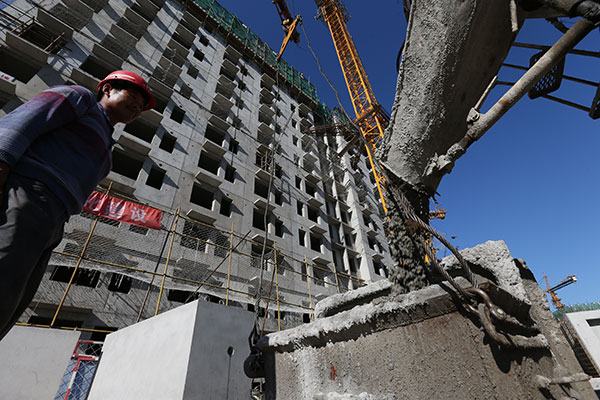China's property taxes coming soon
(Xinhua) Updated: 2015-08-06 08:55
 |
|
A property construction site in Tongzhou district of Beijing. [Photo provided to China Daily] |
BEIJING - The Standing Committee of the National People's Congress (NPC), China's top legislature, has included Property Tax Law in a legislation plan released this week.
"Conditions to enact these laws are ripe, and the 12th NPC plans to review them within its tenure which ends in early 2018, " said the Standing Committee website.
"According to the NPC plan, the property taxes law will probably be passed by the end of 2017," said Shi Zhengwen, a professor of fiscal and financial law with the China University of Political Science and Law. There is no official timetable for the implementation of property taxes but the market widely expected 2020 to be the time.
The property sector involves a basket of taxes, including a real estate tax levied on home owners and a land tax on property developers, created with the aim of regulating the once over-heated property market.
Property taxes in Shanghai and Chongqing began on a pilot basis in 2011 but extension was postponed mainly due to a lack of legal backing.
When the real estate market began to cool in 2014, particularly in lower-tier cities and towns, some insiders expressed fears that property taxes may deal the already ailing market a heavy blow.
"Property taxes can help curb speculation and increase revenue for cash-strapped local governments," said Ni Pengfei of the Chinese Academy of Social Sciences.
- 2015 China International Fair for Investment and Trade kicks off in Xiamen
- China's commodity imports robust in Jan-Aug period
- China stocks rebound 2.92%
- 2015 China box office already past 2014 total
- China foreign trade decline widens in August
- Interview: JP Morgan's senior executive bullish on China
- Innovation, development the focus for NZ mayors
- Lives of freelancers

















